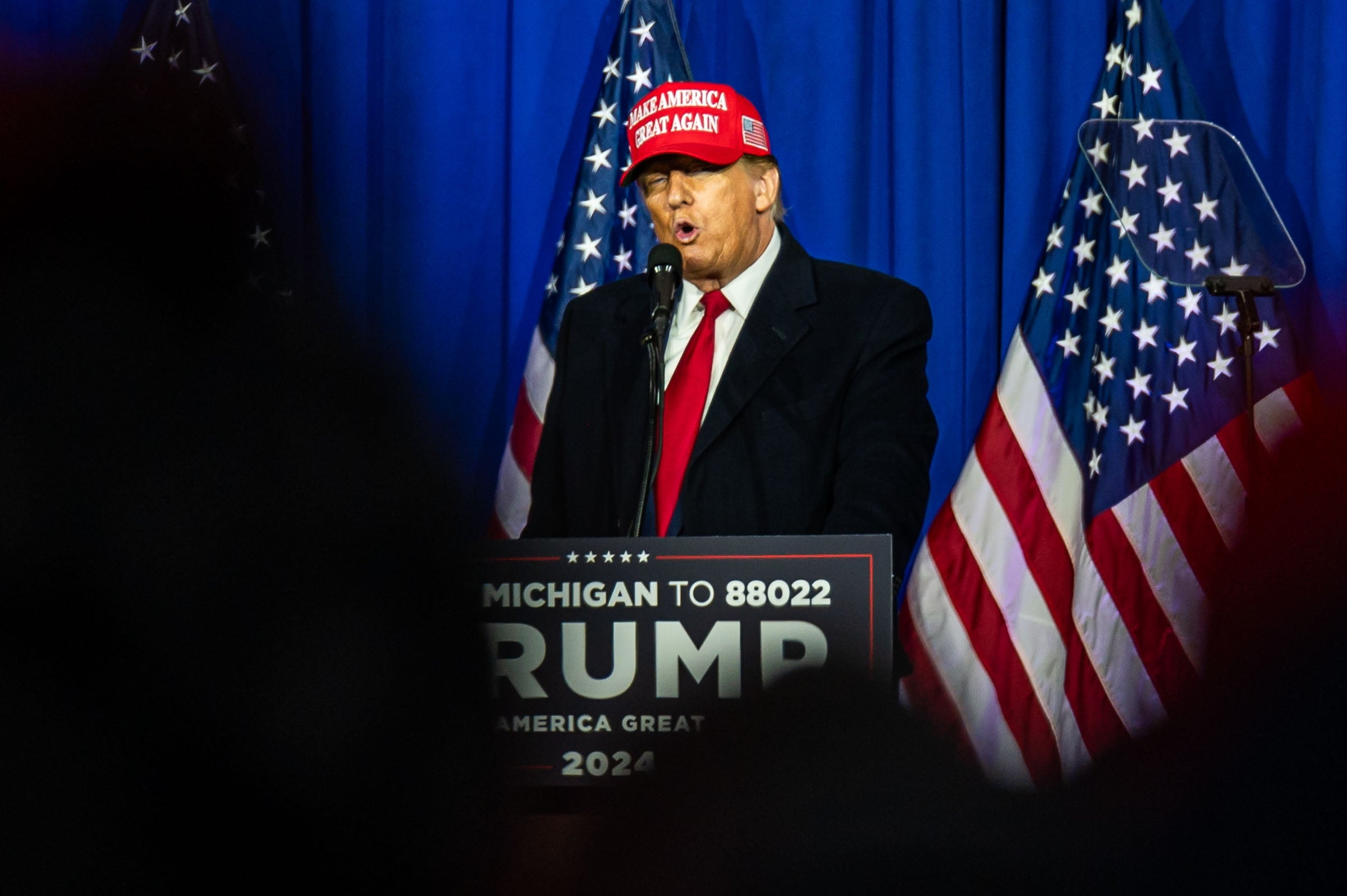How Trump can appeal his fraud verdict – and if he can afford it
The former president faces half a billion dollars in penalties that risk wiping out his reported cash on hand
After losing a sprawling civil fraud case in New York, Donald Trump faces tens of millions of dollars in financial penalties that he won’t be able to escape, even as he appeals.
The former president has 30 days from the ruling to come up with the cash or secure a bond to appeal the $364m verdict against him, a figure that is growing to nearly half a billion dollars with daily interest.
An appeal would effectively require a deposit in the form of a bond to front the costs for him. Asking for a third-party guarantee could cost him a percentage of the judgment, plus interest and fees, that he can’t recover.
And finding a company willing to take up the case for the former president – who faces a mountain of criminal and civil litigation against him, including a nearly $84m defamation ruling he is also trying to escape – could also be a challenge, and may risk wiping out a significant amount of his cash on hand.
Whichever route he ends up taking, navigating the appeals process will be a massive, financially crushing headache for Mr Trump as he campaigns for the Republican presidential nomination.
During a taped deposition in the case last year, Mr Trump claimed that he has more than $400m in cash available to him.
His 2021 statement of financial condition – the documents at the centre of the fraud case, and the most recent available from the trial – stated that he had roughly $294m in cash, a figure that New York Attorney General Letitia James alleges is inflated.
If he seeks a surety bond, Mr Trump could be required to show a bank’s guarantee that he can pay the money back, or post collateral that matches the size of the judgment, which could require multiple surety companies pooling their efforts to stand up a bond. They could potentially charge a significant premium that might require other assets as collateral.
He could also sell off properties and assets or pull from Trump Organization funds to come up with the cash.
Mr Trump also could try pulling from political action committees that he has already been using to pay attorneys and legal costs, which would likely flout campaign finance rules, or he could call on his supporters to raise the money for him. Two days after the verdict, his campaign sent an email asking “are you voting for me after the ruling?” with a link to a “MAGA Poll” that directed people to a donation page.

The ruling marks the culmination of three-year investigation from state prosecutors, blockbuster lawsuit from Ms James’s office and 11 weeks of testimony in a closely watched trial in New York.
Defendants – which include Mr Trump, his sons Eric Trump and Donald Trump Jr, and associates Allen Weisselberg and Jeffrey McConney, as well as Mr Trump’s real estate entities in his brand-building portfolio – were found to have grossly inflated his net worth and assets to fraudulently obtain favourable financing terms from banks and lenders.
The total “disgorgement” owed back to the state among all the defendants – money that is effectively forfeited as “ill-gotten gains” through a years-long fraud scheme – amounts to roughly $364m, or nearly $464m with interest. Those figures will continue to increase every day until they are paid.
New York Justice Arthur Engoron noted in his 92-page ruling on 16 February that the ruling includes “joint and several liability” against Mr Trump and certain entities.
According to the judge, “joint and several liability is warranted when the misconduct of the company and its top controlling officers are indistinguishable,” which allows the state attorney general to go after Mr Trump as well as the companies themselves.
The disgorgement from Mr Trump’s loan savings amounted to more than $168m. That figure has accrued $75m in interest over nearly five years, with a daily increase of nearly $88,000.
Disgorgement from the sale of the Old Post Office hotel property in Washington DC totals $126m. He owes another $20m in interest.
His total from the sale of the Ferry Point golf course in New York amounts to $60m. With interest, it adds another $3.5m.
Mr Trump is already embroiled in an appeals process with the case, after his attorneys appealed a pretrial judgment in September of last year.
The ruling, which found him liable for fraud and ordered the suspension of his business licenses in the state, has effectively been on hold throughout the course of the trial. It is unclear whether a state appeals court will consider both appeals or separately. The process is expected to take months to work through.
Join our commenting forum
Join thought-provoking conversations, follow other Independent readers and see their replies
Comments
Bookmark popover
Removed from bookmarks